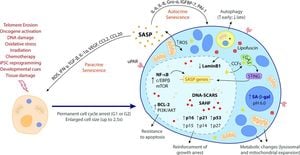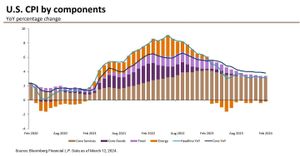Heidi Reichinnek is not just another politician; she's becoming the face of the Linke Party, charming supporters and critics alike with her outspoken demeanor and presence. Having recently led the Linke back to the Bundestag with 8.7 percent of the vote, her charisma and engagement seem to be revitalizing the party, particularly following the turbulent exit of former leader Sahra Wagenknecht.
Reichinnek's rise can be summed up as nothing short of sensational. Known for her vibrant personality, she embodies the progressive spirit of the Linke. With her vivid arm tattoos serving as both personal expression and political statement, she's garnered attention not just for her policies but also for her distinct style. “Where Heidi Reichinnek appears, her fans are waiting,” stated Die Welt, calling her “something of a star,” with such sentiments echoed by Spiegel and taz.
Social media has played a pivotal role. On TikTok, Reichinnek boasts over half a million followers and has amassed nearly 15 million likes, merging humor with pointed political critiques, effectively appealing to younger demographics. This presence marks her as one of the most successful politicians on the platform.
Highlighting her unique political philosophy, Reichinnek's tattoos tell stories of her beliefs. One tattoo, depicting Nofretete wearing a gas mask, reflects her deep political engagement, tracing back to her experiences during the Arab Spring in Egypt, which she articulated on TikTok. “It symbolizes the role of women, and the frustration of people saying: 'We're taking to the streets, no matter what,'” she explained.
Another tattoo honors Rosa Luxemburg, the historic socialist revolutionary. “Rosa Luxemburg is my political role model because she showed the humanity behind politics,” Reichinnek noted, emphasizing the importance of connecting policy with personal stories and struggles. Her radical spirit resounded through her speeches, especially during contentious parliamentary discussions concerning migration policies.
Despite the recent electoral successes, Reichinnek cautions against complacency. According to her, the figures showing the Linke's potential gains are no reason to celebrate prematurely. “This is not all plain sailing,” she remarked, urging her party to avoid overconfidence as they plot their future course.
Linke leader Jan van Aken has expressed willingness to enter coalition talks should their current momentum carry them forward. He noted, “If election night works out, I’m ready for coalition talks.” His remarks convey the party's aim to establish itself firmly within the Bundestag, following the electoral drop experienced during previous terms.
On the brink of the elections, the Linke has seen significant improvements. The latest ZDF Politbarometer indicates support rising to approximately eight percent, showcasing enhanced public confidence compared to their 2017 performance, where they narrowly missed meeting the five-percent threshold. The party now hopes to convert this enthusiasm among the electorate, particularly the youth, who form much of their newly expanded voter base.
Gregor Gysi, another senior figure within the party, echoed these sentiments, celebrating over 20,000 new members joining the Linke, bringing renewed vigor to its ranks. “The Linke is more alive than ever before!” he stated passionately. He aims for the Linke to be seen as representative of younger viewpoints and interests, positioning the party as both relevant and energetic.
Nevertheless, the path forward is fraught with challenges. After their electoral arrival, the Linke now needs to organize and prepare its expanded parliamentary group for effective governance without succumbing to internal disagreements. With returning figures like Gysi sharing the stage with newer talent, balancing experience with fresh perspectives will be key.
Recent criticisms from rival politicians, particularly those from the Greens, have posed additional challenges, with claimants asserting the Linke cannot effectuate change without holding governing opportunities. This sentiment has been echoed by various political commentators and their campaigns, which seek to undermine the credibility of the Linke's altruistic platform.
The focal point of contention may serve as the Linke's identity itself. While the party acknowledges its longstanding ideology of transformation over governance, the push for more immediate results may redefine how they navigate the future political climate, amid rising nationalistic tendencies and public discontent.
Though many see the Linke's recent electoral resurgence as hopeful, whether Heidi Reichinnek can catalyze genuine political change remains to be seen. The growing popularity surrounding her persona and political ideology invites scrutiny of her capacity to translate grassroots admiration and digital engagement to effective governance.
With Reichinnek at the helm, her remarkable rise reflects broader shifts within the Linke Party and German politics. Yet as the dust settles from the elections, her ability to maintain momentum through resilience, unity, and consistent messaging will be her litmus test.



